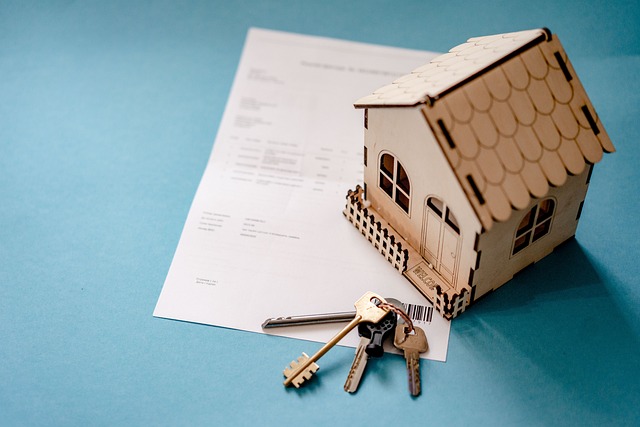In recent years, AI has been transforming multiple industries, and real estate is no exception. Among its most powerful applications is property valuation—a task that has traditionally been time-consuming and based largely on subjective estimates. Now, with AI-driven property appraisal tools, predictive analytics, and automated valuation models (AVMs), real estate professionals can make more accurate, data-backed assessments in a fraction of the time. Whether it’s AI-powered property appraisal or machine learning for real estate price forecasting, artificial intelligence is rapidly changing how properties are valued and enhancing the quality of investment decisions. Here’s how to utilize AI for property valuation in the real estate industry effectively.
Benefits of AI-Powered Property Appraisal
AI-powered property appraisal allows real estate professionals to leverage vast datasets to make more accurate property valuations. Unlike traditional methods, which might rely heavily on a few comparable properties, AI analyzes hundreds or even thousands of data points, such as location, square footage, local market trends, and neighborhood characteristics. Machine learning algorithms can then find patterns that a human might overlook, enhancing the reliability of the appraisal.
For instance, a real estate company can use AI to assess properties’ future values based on local economic trends, infrastructure developments, and historical data on property value fluctuations. This approach helps investors, real estate agents, and buyers alike make informed decisions that align closely with market realities.
AI-powered appraisals can also reduce biases. Traditional appraisals sometimes rely on subjective inputs, which can vary between assessors. By using an AI model, these estimates can be standardized across properties, creating a fairer valuation system for both buyers and sellers.
How Automated Valuation Models (AVMs) Work in Real Estate
Automated valuation models (AVMs) are increasingly popular tools in property valuation that leverage AI to quickly calculate a property’s worth. AVMs work by analyzing data from various sources, including public property records, tax assessments, and recent sales in the area. Machine learning algorithms then evaluate this data to predict a fair value, typically within seconds. This speed is especially useful in fast-paced markets where delays in property appraisal could lead to missed opportunities.
AVMs not only save time but also provide a cost-effective alternative to traditional valuation methods. In markets where property values change rapidly, AVMs can be updated frequently to provide up-to-date valuations, helping real estate investors make timely decisions. Furthermore, real estate firms using AVMs have a competitive edge, as they can provide clients with faster, more reliable estimates, improving customer satisfaction and streamlining the buying and selling process.
For prospective buyers, AI-enabled AVMs mean they have access to more precise estimates without waiting weeks for a manual appraisal. Additionally, by reducing the need for in-person evaluations, AVMs can save money for both the buyer and the seller.
Using Predictive Analytics for Property Price Forecasting
Predictive analytics in real estate is a powerful way to forecast property prices. This AI-driven approach uses historical data, market trends, and external variables—such as interest rates, employment rates, and demographic data—to predict future property values. By using machine learning, predictive analytics can identify underlying trends and patterns that may not be obvious in short-term data, allowing real estate agents and investors to anticipate market shifts.
For example, an AI model might recognize that properties in a certain neighborhood consistently appreciate at a higher-than-average rate, even if recent sales data don’t show significant increases. This insight can be valuable for investors seeking to buy in areas likely to increase in value. Predictive analytics also enables real estate professionals to offer customized advice to clients, helping them to make decisions that align with their financial goals.
AI’s ability to analyze big data also means that predictions are based on a much larger data pool, leading to greater accuracy. While traditional valuation might look at nearby recent sales, predictive analytics considers everything from regional economic shifts to future urban development plans, providing a comprehensive look at property value potential.
AI for Real Estate Investment Decisions
AI doesn’t just help in property valuation; it also enhances decision-making for real estate investments. By providing a clearer picture of a property’s current and future worth, AI-driven analysis enables investors to weigh the potential risks and rewards of an investment more accurately. Machine learning algorithms can also analyze market data and economic indicators to pinpoint lucrative investment opportunities and detect warning signs of possible downturns.
For instance, a real estate investor might use AI to analyze several markets simultaneously, comparing factors like historical growth rates, rental yields, and vacancy rates. With such detailed insights, investors can diversify their portfolios with greater confidence, knowing their investments are backed by data rather than solely by intuition.
In addition, AI tools often come with visualization capabilities, making it easy for investors to track trends and spot opportunities. These tools can offer intuitive insights, helping even novice investors navigate complex real estate markets. By lowering barriers to entry, AI can democratize real estate investing, allowing more people to participate in the market with better information.
How AI Improves the Accuracy of Property Assessments
One of the standout benefits of using AI in real estate is its ability to improve the accuracy of property assessments. In the past, assessments were often based on broad generalizations or subjective evaluations. However, AI enables a granular approach that takes into account unique property features and local market conditions. AI algorithms can even adjust valuations based on recent changes in market conditions, providing real-time assessments that reflect the latest data.
With AI, properties are assessed with data-driven precision, often using real-time information from property listings, tax records, and market databases. This approach reduces human error and enhances transparency, as buyers and sellers can see how each factor affects the valuation. Real estate companies can use these accurate assessments to build trust with clients, as they’re offering fair and objective property values.
Moreover, AI’s continuous learning capabilities mean that valuations improve over time. Each time an AI model is updated with new data, it refines its predictions, leading to ever-more accurate property assessments. This continual improvement benefits everyone in the real estate market, from agents to homeowners to investors.
Conclusion
AI in real estate is revolutionizing property valuation by making it faster, more accurate, and more accessible. Through tools like automated valuation models, predictive analytics, and data-driven property appraisals, AI allows real estate professionals to deliver superior assessments and make better investment decisions. As AI continues to evolve, its applications in real estate will likely expand, offering even more innovative solutions for property valuation and market analysis. Embracing AI for property valuation not only provides a competitive advantage but also builds trust with clients by offering transparent, data-backed estimates. Whether you’re a real estate agent, investor, or buyer, using AI can elevate your approach to property valuation and bring greater precision to your real estate endeavors.






